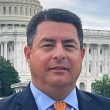The need for balance
Now that the Deepwater Horizon oil spill apparently is capped and clean-up is underway, the review of procedures used in approval and oversight by the government will begin.
Perhaps you have heard the myriad stories about the relationship between the oil industry and the Mineral Mining Service (MMS), an arm of the Interior Department. This includes a report by the Interior Department’s inspector general, who found that abuses at the agency went well beyond undue influence.
There certainly is a point at which there is too much familiarity between an agency and the industry it is attempting to govern. Certainly MMS found that extreme. There must be a concern, however, that the review of this relationship may result in a knee-jerk reaction that swings the pendulum too much the other way, not just for MMS, but for all federal agencies.
This begs the question: What is the proper relationship between a government agency and the industry it regulates? In the big picture, the answer is not always so cut-and-dry.
A government agency should not be so close to the industry that it can’t be objective. At the same time, the agency can’t be so detached that it has no clue about the industry and, therefore, makes uninformed decisions.
Let’s look at this issue with the FCC in mind. There are some amazing people at the commission, people with whom you can sit down, discuss a problem, and explore solutions that serve both the public and the industry. These people became excellent at their jobs by becoming educated on the industries they regulate. That education was provided by the industry or public-interest groups in a variety of contexts.
This knowledge is vital, because when it is lacking, regulators — as well as lawmakers — tend to make bad decisions that harm the public interest.
Tower of Power sings a song called “A Little Knowledge is a Dangerous Thing.” Certainly, that applies to the land-mobile radio industry. The LMR industry needs regulators who understand its nuances. They need to understand how public safety and commercial operators came to use the same spectrum. They need to understand that public safety is not “one size fits all” when it comes to communications. They need to understand that a small two-way SMR operator cannot be regulated under the same terms as a commercial wireless operator.
Despite a previous effort or two, there is no textbook to read where one can become a land mobile radio expert. You cannot read Part 90 and become instantly informed. You can’t even read FCC decisions and become an expert, because the FCC never published a large number its land-mobile decisions. Do you have a copy of the commission’s public notice on demonstration licenses?
Here’s hoping that a proper balance can be struck that results in objective, yet knowledgeable federal agencies.
What do you think? Tell us in the comment box below.
Alan Tilles is counsel to numerous entities in the private radio and Internet industries. He is a partner in the law firm of Shulman Rogers Gandal Pordy & Ecker and can be reached at [email protected].

















